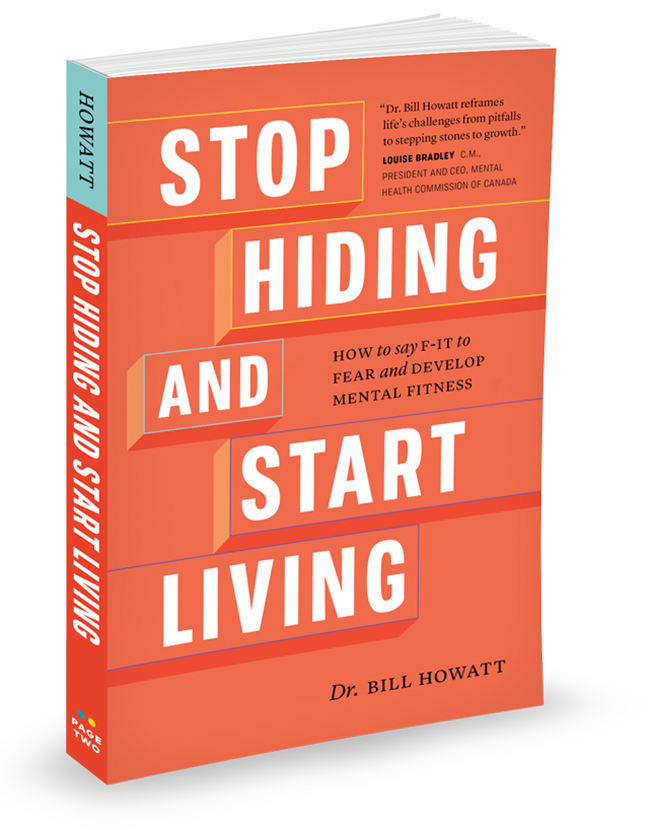#28 - The Coping Crisis: Dr. Bill Howatt on Building Mental Health
Today’s guest is Dr. Bill Howatt
Most people — and most organizations — confuse mental health with mental illness, so they miss early signals, underinvest in daily coping skills, and end up with preventable distress, disability, and burnout. Bill’s mission is to teach people and workplaces how to build mental health on purpose before it becomes mental illness.
In today’s conversation Bill Howatt explores how his own lived experience with dyslexia, ADHD, anxiety, and shame became the engine for a 30-year career in mental health — and why he now focuses on helping employers create psychologically safe, health-promoting workplaces. He and Dr. Wells map the crucial distinction between mental health and mental illness, walk through the “awareness → accountability → action” pathway, and show why coping skills must be trained like oral hygiene. They also unpack the role of managers, stress, and fast-brain autopilot in the current “coping crisis.” The through-line: mental health is trainable, but only if we make it intentional.
You will learn how Bill separates mental health (daily emotional weather) from mental illness (clinical criteria) — two axes, not one spectrum; how small, teachable “developmental coping skills” (locus of control, emotional regulation, self-efficacy) protect you from sliding into distress; how chronic stress, if unrecognized, quietly rewires behaviour and physiology; why managers and workplaces carry half the accountability for employee mental health; and how to create your own daily sustainability plan — the mental-health equivalent of brushing your teeth.
You will discover that there is no finish line for mental health — just a repeatable loop: get a baseline → learn micro-skills → practise them daily → ask for help early. That loop is what keeps stress from becoming illness.
Lots of high performers “renormalize” feeling lousy — they stay in emotional coping, add more stress, then wonder why they can’t recover. Bill gives a way to spot that slide and a language leaders can use with teams to intervene early.
Key take aways:
Mental health ≠ mental illness.
Awareness → accountability → action. Daily.
Coping skills can be taught at work.
Managers shape psychological safety.
Plan for failure; it’s part of learning.
“Stress isn’t the enemy — not knowing how to cope is.”
Today’s Expert Guest - Dr. Bill Howatt
Dr. Bill Howatt is one of world’s leading authorities on workplace mental health and psychological health and safety. A former Chief of Research & Development at Morneau Shepell, he has 30+ years of clinical and organizational experience, a PhD and post-doc in behavioural science (UCLA Semel Institute), and has authored dozens of books and columns on mental health, addictions, and leadership, including The Coping Crisis and Stop Hiding & Start Living.
Bill brings three lenses at once — clinician, academic, and corporate advisor. He lived with learning disabilities and ADHD, counselled individuals one-to-one, then realized he could help more people per hour by fixing the workplace system. So he built tools like the Total Health Index and QWL surveys to give leaders data and a playbook for psychological safety. It’s mental health that’s compassionate and operational.
Follow Dr. Howatt on Instagram & Linked In.
Check out his website.
Explore his books.
Stop Hiding and Start Living
Happiness and well-being are not destinations; they’re an outcome of choices you make, and ways of being and living daily.
There can be times in your life when you’re happy: you’re in love, your children are healthy, and you’re professionally fulfilled. And then there can be times when you’re worrying about whether you’ll be able to get through: your finances have become a burden, your blood pressure is sky high, and your spouse has just left you.
We all experience stresses and failures. The key is developing coping skills that can transform even the worst situation into an opportunity to build resilience – your capacity to deal with and push through different degrees of adversity.
In this book, mental health expert Bill Howatt presents a five-part model to move you past the rut in your life and toward happiness. He first shows you how to build awareness of each area in your life – career, finances, relationships, physical health, and mental health. Then, he shows you how to take accountability and make healthy changes that will improve your life. Finally, he gives you the tools to build your resilience and take action to achieve your goals. Bill Howatt’s model will help you make choices toward happiness and well-being in a smart way so you can stop hiding and start living.
This podcast contains advice and information relating to health and wellness. It should be used to supplement rather than replace the advice of your doctor or another trained health professional. If you know or suspect that you have a health problem, seek your physician’s advice before embarking on any medical program or treatment. All efforts have been made to assure the accuracy of the information contained in this podcast / interview / article as of the date of publication. The author and publisher disclaim liability for any medical or other outcomes that may occur as a result of applying the methods suggested in this material.




